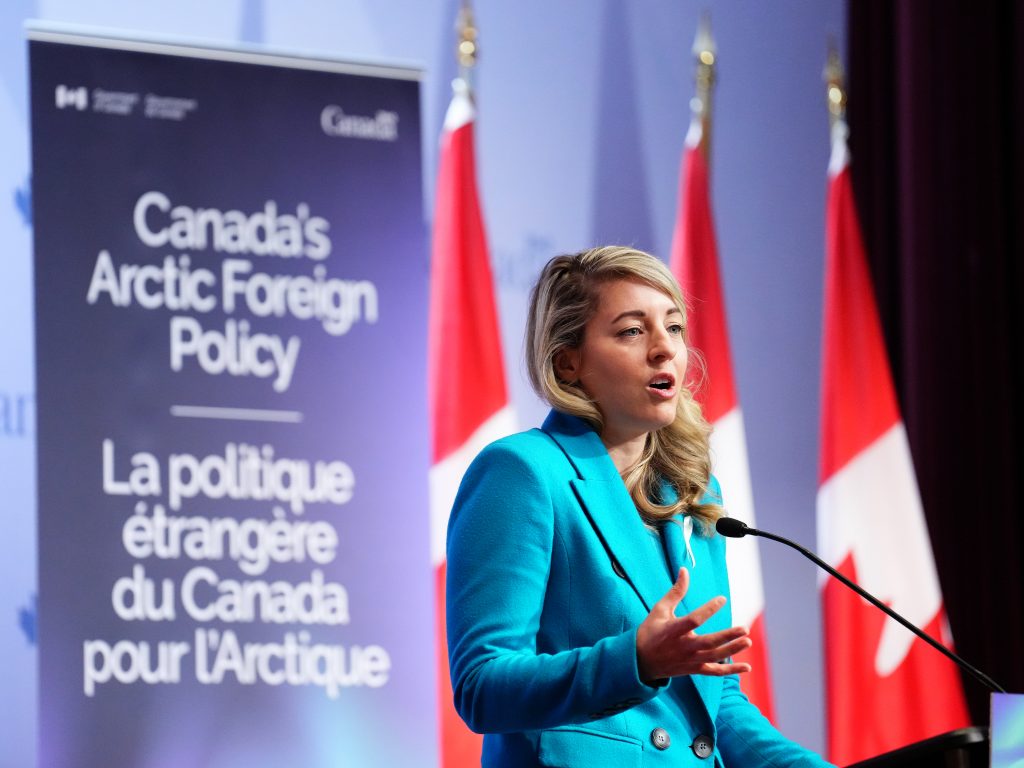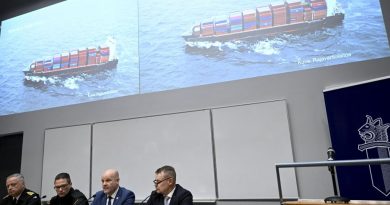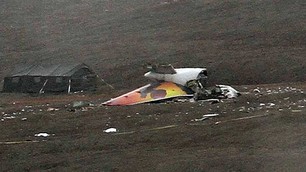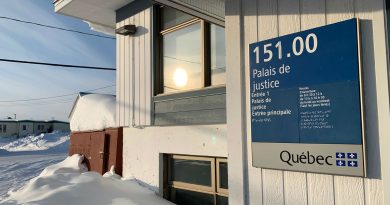Canada to open consulates, appoint Arctic ambassador under new foreign policy

New policy officially launched Friday
Canada will open consulates in Alaska and Greenland, appoint an Arctic ambassador and continue its boundary negotiations with the United States over the Beaufort Sea.
Those promises and more are laid out in a new federal document released Friday morning about Canada’s Arctic foreign policy.
The federal government, along with northern premiers and Indigenous organizations, announced the policy in Ottawa.
It follows Canada’s Arctic policy framework announced in 2019, which set out in broad strokes how the federal government plans a “profound change of direction” in its relationship to the North.
The new policy provides funding over the next five years for Global Affairs Canada.

Aside from an ambassador and new consulates, the policy promises Canada will initiate Arctic security talks with foreign affairs ministers in other northern countries, and support science and research co-ordination in the Arctic.
The policy document also promises boundary negotiations with the U.S. over the Beaufort Sea, and finish implementing a boundary agreement between Canada and the Kingdom of Denmark over Hans Island (Tartupaluk).
The 37-page policy document also warns of Russian action in the Arctic, including its modernization of its Arctic infrastructure and its military capabilities.
It highlights that the Canadian Forces station in Alert, on Ellesmere Island in Nunavut, is closer to the Russian military’s air force base at Nagurskoye, Russia, than Iqaluit is to Ottawa or Toronto is to Winnipeg.
In April, the federal government announced money for Arctic defence, with few details on how that money would be put toward infrastructure.
Related stories from around the North:
Canada : Canadian military says it has tracked, stopped China surveillance in Arctic waters, The Canadian Press
Finland: Russian cyber attacks, espionage pose growing threat to Finnish national security, Yle news
Iceland: Iceland authorizes U.S. submarine service visits, Eye on the Arctic
Norway: Russian jamming disrupting GPS signals for Norwegian aviation almost daily, The Independent Barents Observer
Russia: Russia accuses US of stoking tensions in the Arctic, The Independent Barents Observer
Sweden: Swedes must mentally prepare for war, says military top brass, Radio Sweden
United States: Space takes centre stage in U.S. Department of Defense Arctic strategy, Eye on the Arctic



